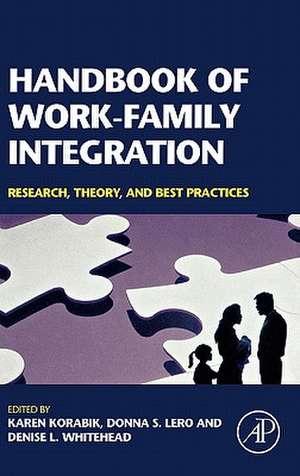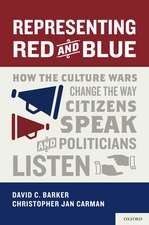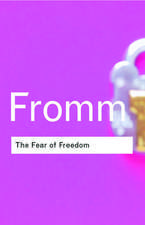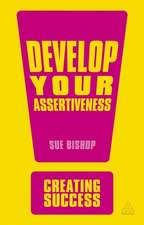Handbook of Work-Family Integration: Research, Theory, and Best Practices
Editat de Karen Korabik, Donna S. Lero, Denise L. Whiteheaden Limba Engleză Hardback – 30 mar 2008
Preț: 480.48 lei
Preț vechi: 616.82 lei
-22% Nou
Puncte Express: 721
Preț estimativ în valută:
91.94€ • 96.25$ • 76.07£
91.94€ • 96.25$ • 76.07£
Carte tipărită la comandă
Livrare economică 29 martie-12 aprilie
Preluare comenzi: 021 569.72.76
Specificații
ISBN-13: 9780123725745
ISBN-10: 0123725747
Pagini: 456
Ilustrații: Illustrated
Dimensiuni: 152 x 229 x 29 mm
Greutate: 0.72 kg
Editura: ELSEVIER SCIENCE
ISBN-10: 0123725747
Pagini: 456
Ilustrații: Illustrated
Dimensiuni: 152 x 229 x 29 mm
Greutate: 0.72 kg
Editura: ELSEVIER SCIENCE
Public țintă
Researchers and academics in social and organizational psychology, family science, sociology, and business/management.Cuprins
Handbook of Work-Family Integration:
Theories, Perspectives and Best Practices
Chapter 1: Historical Trends in Work-Family: The Evolution of Earning and Caring
Denise L. Whitehead
Chapter 2: A Conceptual Model of the Work-Family Interface
Patricia Voydanoff
Chapter 3: Reflections and Future Directions on Measurement in Work-Family Research
Dawn S. Carlson & Joseph G. Grzywacz
Chapter 4: On Multiple Roles: Past, Present and Future
Rosalind Chait Barnett
Chapter 5: Toxic Job Ecologies, Lagging Time Convoys and Work-Family Conflict: Can Families (Re)Gain Control and Life Course “Fit?
Phyllis Moen & Noelle Chesley
Chapter 6: Too Much To Do, and Not Enough Time: An Examination of Role Overload
Linda Duxbury, Sean Lyons, & Christopher Higgins
Chapter 7: Spillover Between Personal and Professional Life: Definitions, Antecedents, Consequences, and Strategies
Steven Poelmans, Olena Stepanova & Aline Masuda
Chapter 8: Work-Related Outcomes of the Work-Family Interface: Why Organizations Should Care
Jay M. Dorio, Rebecca H. Klein, & Tammy D. Allen
Chapter 9: The Emotional Dimension of Family Time and Their Implications for Work-Family Balance
Shira Offer & Barbara Schneider
Chapter 10: Health and Well-Being Outcomes of the Work Family Interface
E. Kevin Kelloway, Jane Mullen & Elizabeth Kelley
Chapter 11: Integrating Gender-related Issues into Research on Work and Family
Karen Korabik, Allyson McElwain, & Dara B. Chappell
Chapter 12: Viewing 21st Century Motherhood Through a Work-Family Lens
Sarah Damaske & Kathleen Gerson
Chapter 13: Work-Life Issues for Fathers
Kerry Daly, Lynda Ashbourne & Linda Hawkins
Chapter 14: Coping with Work-Family Conflict: Integrating Individual and Organization Perspectives
Anat Drach-Zahavy and Anit Somech
Chapter 15: Social Support and Work-Family Conflict
Roya Ayman & Amy Antani
Chapter 16: How do Labour Policies and Social Policies Frame Work-life Integration?
Donna S. Lero
Chapter 17: Work and Family Policy Implementation: An Employment and Organizational Behavior Perspective
Ellen Kossek & Linn Van Dyne
Chapter 18: Work-family Culture:
Current Research and Future Directions
Jeanine Andreassi & Cynthia A. Thompson
Chapter 19: Cross-Cultural Approaches to Work-Family Conflict
Zeynep Aycan
Chapter 20: Future Directions in Work-Family
Suzan Lewis & Donna S. Lero
Theories, Perspectives and Best Practices
Chapter 1: Historical Trends in Work-Family: The Evolution of Earning and Caring
Denise L. Whitehead
Chapter 2: A Conceptual Model of the Work-Family Interface
Patricia Voydanoff
Chapter 3: Reflections and Future Directions on Measurement in Work-Family Research
Dawn S. Carlson & Joseph G. Grzywacz
Chapter 4: On Multiple Roles: Past, Present and Future
Rosalind Chait Barnett
Chapter 5: Toxic Job Ecologies, Lagging Time Convoys and Work-Family Conflict: Can Families (Re)Gain Control and Life Course “Fit?
Phyllis Moen & Noelle Chesley
Chapter 6: Too Much To Do, and Not Enough Time: An Examination of Role Overload
Linda Duxbury, Sean Lyons, & Christopher Higgins
Chapter 7: Spillover Between Personal and Professional Life: Definitions, Antecedents, Consequences, and Strategies
Steven Poelmans, Olena Stepanova & Aline Masuda
Chapter 8: Work-Related Outcomes of the Work-Family Interface: Why Organizations Should Care
Jay M. Dorio, Rebecca H. Klein, & Tammy D. Allen
Chapter 9: The Emotional Dimension of Family Time and Their Implications for Work-Family Balance
Shira Offer & Barbara Schneider
Chapter 10: Health and Well-Being Outcomes of the Work Family Interface
E. Kevin Kelloway, Jane Mullen & Elizabeth Kelley
Chapter 11: Integrating Gender-related Issues into Research on Work and Family
Karen Korabik, Allyson McElwain, & Dara B. Chappell
Chapter 12: Viewing 21st Century Motherhood Through a Work-Family Lens
Sarah Damaske & Kathleen Gerson
Chapter 13: Work-Life Issues for Fathers
Kerry Daly, Lynda Ashbourne & Linda Hawkins
Chapter 14: Coping with Work-Family Conflict: Integrating Individual and Organization Perspectives
Anat Drach-Zahavy and Anit Somech
Chapter 15: Social Support and Work-Family Conflict
Roya Ayman & Amy Antani
Chapter 16: How do Labour Policies and Social Policies Frame Work-life Integration?
Donna S. Lero
Chapter 17: Work and Family Policy Implementation: An Employment and Organizational Behavior Perspective
Ellen Kossek & Linn Van Dyne
Chapter 18: Work-family Culture:
Current Research and Future Directions
Jeanine Andreassi & Cynthia A. Thompson
Chapter 19: Cross-Cultural Approaches to Work-Family Conflict
Zeynep Aycan
Chapter 20: Future Directions in Work-Family
Suzan Lewis & Donna S. Lero

















